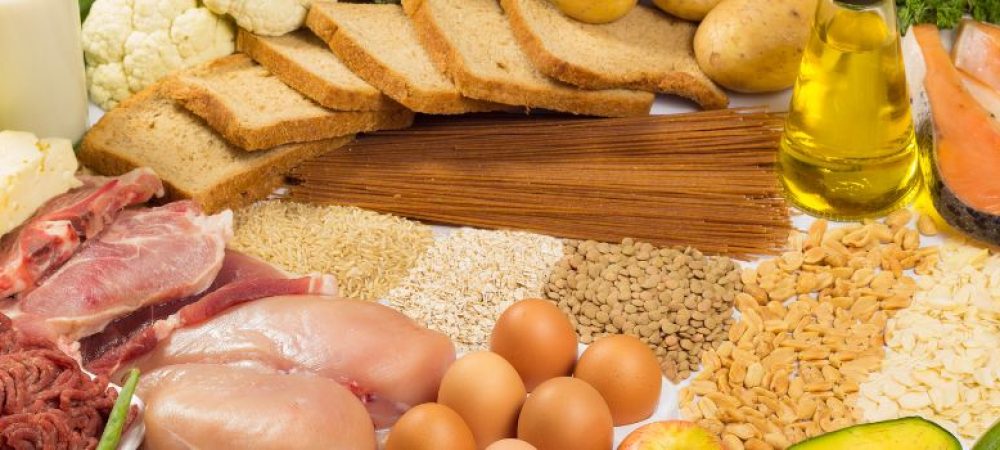Macronutrients are essential nutrients that our body needs in large quantities to function properly. They are responsible for providing us with energy, building and repairing tissues, and regulating various bodily functions. The three main macronutrients are protein, carbs, and fats.
Protein: Building Blocks of the Body
Protein is a vital macronutrient that our body requires for growth, development, and repair. It is a complex molecule made up of amino acids that serve as the building blocks for our muscles, organs, and other tissues.
Protein is responsible for various functions in the body, including:
- Building and repairing muscles and tissues
- Regulating enzymes and hormones
- Supporting the immune system
- Transporting oxygen and nutrients throughout the body
Protein is especially crucial for people who engage in regular physical activity, such as athletes and bodybuilders, as it aids in muscle growth and recovery. It also helps to reduce muscle soreness and improve exercise performance.
Good sources of protein include:
- Lean meats, such as chicken, turkey, and fish
- Eggs
- Dairy products, such as milk, cheese, and yogurt
- Legumes, such as beans, lentils, and chickpeas
- Nuts and seeds
Carbs: Fuel for the Body
Carbohydrates, or carbs, are our body’s primary source of energy. They are broken down into glucose, which is then used by our cells for energy. Carbs are essential for proper brain function, muscle activity, and other bodily processes.
Carbs can be classified into two main categories:
- Simple carbs: These are sugars that are easily broken down and absorbed by the body. They are found in foods like fruit, milk, and candy.
- Complex carbs: These are starches and fibers that take longer to digest and absorb. They are found in foods like whole grains, vegetables, and legumes.
It is important to choose healthy sources of carbs, such as whole grains, fruits, and vegetables, rather than processed and sugary foods. A diet high in refined carbs can lead to weight gain, high blood sugar, and other health issues.

Fats: Essential for Health
Fats are another important macronutrient that our body needs for various functions. They are responsible for regulating hormones, insulating organs, and providing energy during low-intensity activities. Fats can be classified into three main categories: saturated, unsaturated, and trans fats.
Saturated fats are typically found in animal products, such as butter and red meat, and should be limited in the diet as they can increase cholesterol levels and increase the risk of heart disease.
Unsaturated fats, on the other hand, are typically found in plant-based foods, such as nuts, seeds, and avocados. These fats can help to reduce cholesterol levels and improve heart health.
Trans fats are typically found in processed foods, such as fried foods and baked goods, and should be avoided as they are associated with an increased risk of heart disease.
Good sources of healthy fats include:
- Fatty fish, such as salmon and tuna
- Nuts and seeds
- Avocado
- Olive oil
- Coconut oil
Macronutrients and Weight Loss
If you are trying to lose weight, understanding macronutrients is crucial. In order to lose weight, you need to create a calorie deficit, which means burning more calories than you consume.
It’s important to choose the right balance of macronutrients for your body and your goals. For example, if you are
trying to lose weight, you may want to focus on a high-protein, low-carb diet. This is because protein helps to keep you feeling full for longer, which can help you eat fewer calories overall.
A high-protein, low-carb diet can also help to preserve muscle mass while losing weight. This is important because muscle burns more calories than fat, so preserving muscle mass can help you maintain a higher metabolism and burn more calories throughout the day.
However, it’s important to remember that all three macronutrients are essential for good health, so it’s important to include a variety of foods in your diet. Consuming too much of any one macronutrient can lead to nutrient deficiencies and other health issues.
Macronutrients and Exercise
If you are an athlete or exercise regularly, understanding macronutrients is also important. Consuming the right balance of macronutrients can help you perform better and recover more quickly from workouts.
For example, consuming protein after a workout can help with muscle recovery and growth. Carbs can also be beneficial before and after a workout as they provide energy for exercise and replenish glycogen stores in the muscles.
It’s important to remember that the timing and amount of macronutrients you consume will depend on your individual needs and goals. Consulting a registered dietitian or sports nutritionist can help you develop a personalized nutrition plan to support your athletic performance.


